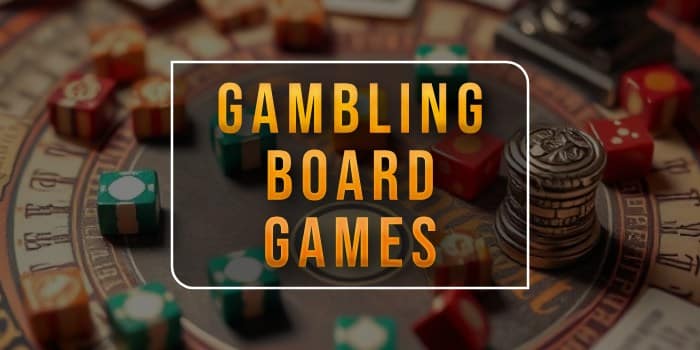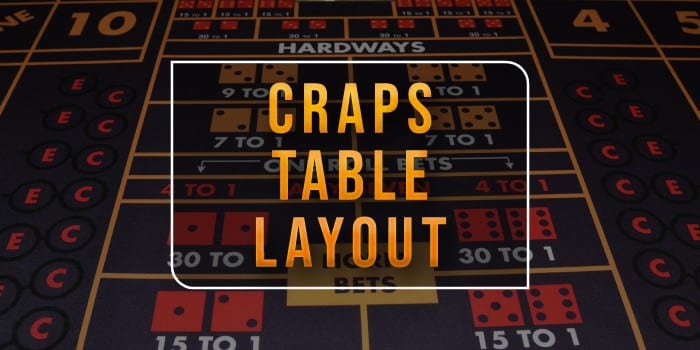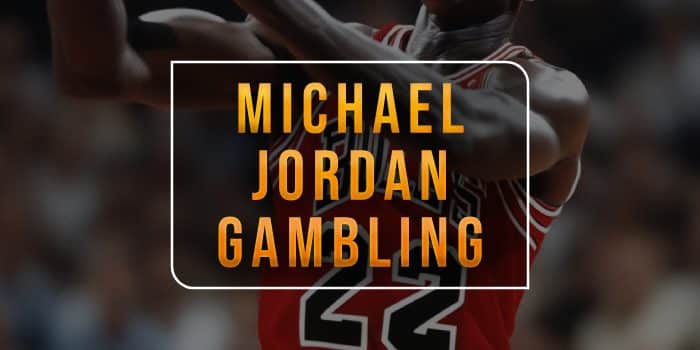- Casino
- By State
- Alabama
- Alaska
- Arizona
- Arkansas
- California
- Colorado
- Connecticut
- Delaware
- Georgia
- Florida
- Hawaii
- Idaho
- Illinois
- Indiana
- Iowa
- Kansas
- Kentucky
- Louisiana
- Maine
- Massachusetts
- Maryland
- Michigan
- Minnesota
- Mississippi
- Missouri
- Montana
- Nebraska
- Nevada
- New Hampshire
- New Jersey
- New Mexico
- New York
- North Carolina
- North Dakota
- Ohio
- Oklahoma
- Oregon
- Pennsylvania
- Rhode Island
- South Carolina
- South Dakota
- Tennessee
- Texas
- Utah
- Vermont
- Virginia
- Washington
- West Virginia
- Wisconsin
- Wyoming
- By State
- Slots
- Poker
- Sports
- Esports
- Home
- How Does Sports Betting Work?
How Does Sports Betting Work?

Sports betting is one of the fastest-growing entertainment markets worldwide, and after the United States legalized sports gambling in May 2018, things have been picking up quickly. Yet, for all its fame and popularity, there are still aspects of the sports betting experience that are not completely understood by participants, casual fans, or even some “sharps,” as the more experienced sports bettors are called.
What your chances of winning a bet are and how you interpret betting odds are the bread and butter of every sports bettor’s attitude towards the activity. However, there are not too many people who seem to be able to talk about sports betting with confidence and authority. Can you tell American odds from decimal odds, and do you know how these translate into a potential profit?
One popular gambling saying argues that good teams win, but great wins cover (the spread). Being able to tell the difference and predict winning scenarios is important. First, let’s see how sports betting runs and how you can use this knowledge to your advantage.
What Is Sports Betting?
Sports betting is the practice of placing money on a potential outcome of a sporting event. The outcome may be something simple, such as which team will win the game, or something more complicated, such as by how many points a team would win.
For any type of sports betting activity to occur, you need one party to provide you with the odds and accept your wagers and another willing party to participate by committing the money and placing the bet. Once a bet has been placed, it’s locked in and will not be released until such a time that a team wins or some other condition has been met, thus settling the market and allocating winnings.
Every sportsbook will charge you a small fee that is immediately detracted from your wagered amount. The gambling term for this is “juice” or “vigorish,” and it’s a common practice at any betting site or retail venue.
Knowing about vigorish and juice will help you better calculate not just your chance of winning a specific bet but also adjust the expected value you expect to turn on that wager.
What Types of Bets Are There?
There are all sorts of betting scenarios available in today’s highly competitive sportsbook world, and understanding what bets serve what purpose is a good way to guarantee yourself a better payout. From straight-to-point spread bets, there are many ways to make money betting on sporting events.
The lines will vary, and so will the probability, but ultimately, if you understand the archetypes, you will be able to come better prepared and have a chance to turn even a small amount into a big winner. With this in mind, we will now go through several main bet types.
Moneyline or Straight Bets
Moneyline (sometimes misspelled as “money line”) or straight bets are essentially the same thing. A straight bet is placed on a team to win the game, and so is a moneyline. Moneylines are usually associated with American odds and expressed as -/+ 100 or some other three-digit number. Let’s take an example with an available market pulled directly from a sportsbook:
- Philadelphia 76ers (-360)
- Washington Wizards (+285)
The minus (-) tells you who the favorite is and the (+) tells you who the underdog is. The way this works is, you would have to bet $360 to win $100 on the 76ers since their chances of success are so high.
Then again, you stand to win $285 on a $100 bet on the Wizards because they have very slim chances of winning the game in the first place. Moneylines or straights are considered the most common types of bets, and you want to bet on the moneyline, especially if you are new to betting as a whole.
Point Spreads
Remember when we said that great teams cover the spread? Here is an explanation. The spread is an amount that is detracted or added to the final result to define the outcome of the wager but not necessarily reflects which players win the game. Here’s another example pulled directly from a sportsbook:
- Philadelphia 76ers -8 (-110)
- Washington Wizards +8 (-110)
Here, you need to bet $110 on either team. In the case of the 76ers, you are betting that they will win by a difference greater than 8. However, if the Wizards lose by just a few points, but not greater than 8, they are effectively winning you the bet.
Futures
Futures or outright winners are bets usually placed very early in a competition. For instance, you can bet on the Super Bowl winner at the beginning of the NFL Season, same with March Madness, the PGA Tour, or any other event.
Every sportsbook will offer a list of viable candidates, and you will see that the odds will change slightly from one operator to the next. This is where you will want to shop around for the most viable markets and odds.
That is to say that some operators will offer slightly better odds for a given event. Let’s say you want to bet on the Kansas City Chiefs winning the Super Bowl this year. Instead of betting at the first sportsbook you find, you can check all betting lines offered on futures.
Your money will be paid out at the end of the event. To get your money and the profit margin, your selection must win the sporting event you are backing.
Totals or Under/Over
Totals or under/over bets are interesting in the sense that you are no longer betting on a team to win outright. Instead, you want to get whether the total points scored in a game will exceed or fall short of a specific pre-determined number. The sportsbook will give you that number and the odds to go with it, and you can decide whether this wager is worth placing.
Parlays
Parlays are another important bet type that we want to touch on. Here, you will make selections that consist of at least several games or matches. You bet on multiple sporting events, and while the risk will be much higher, so will the reward you can potentially win.
Parlays are sometimes referred to as “accumulators,” especially outside the United States. They are a fun type of bet that can boost your winnings if you place the right selections and every single game turns out a success.
This is clearly a more advanced form of betting, so keep in mind that while the payout is much better, you need a better understanding of the industry and sport as a whole.
Props, Teasers, and Pleasers
Proposition or props bets are an exotic type of wager you place on some unique condition that is defined by each operator separately. You can bet on how many points a player will score by mid-game or how many yards an NFL quarterback is going to rush. There are virtually endless possibilities for props, so keep your eyes sharp for these ones.
A teaser is a very interesting bet and definitely one fit for advanced sports bettors only. A teaser is like a parlay, and it allows you to select multiple games. However, you can alter the point spreads and over/under (totals) of the bet between 4 and 10 points, which could potentially make it easier, but at the same time changes the odds and potential payout.
Last but not least, we have pleasers, which will allow you to let the sportsbook have a slightly better chance of winning while you get much better odds and, with this, a higher potential payout. Pleasers are very advanced types of bets we will cover in a dedicated guide, but for now, it’s good to know they exist.
With this said, it’s important to note that there are more types of bets out there. They may be sports-specific or some other wager types that would prove interesting. Our advice is to focus on the ones listed here and start with moneyline and work your way up gradually.
What Types of Odds Are There?
Now, you will see that many sportsbooks offer a dropdown menu in which they list different types of odds. These odds are usually three main ones, to name Decimal, American and Fractional odds. All three show you the same probability of an event going one way or another, but they are displayed slightly differently.
We have a separate guide that explains the odds in detail, but for now, here are the representations of all three odds. We will use the game between the Utah Jazz and the Memphis Grizzlies as an example.
American Odds
- Utah Jazz -435
- Memphis Grizzlies +340
As explained in this article, American odds show how much you have to bet to win $100. The baseline is always winning $100, but there is no obligation to bet the displayed amount, as the formula is adjustable.
Once again, the Utah Jazz is given a remarkable probability of succeeding. You would need to risk $435 to turn a $100 profit on this selection.
Now, you may be thinking, that this would be a bit of a headache to figure out. Don’t worry, because all sportsbooks do the calculations for you. They give you an estimate of how much you stand to win based on how much you have a bet.
Decimal Odds
- Utah Jazz (1.23)
- Memphis Grizzlies (4.40)
Decimal odds are somewhat simpler to calculate if you are not used to moneyline. The way they work is that for every $1 you bet, you can expect to win back $1.23 in the case of Utah Jazz and $4.40 in the case of the Memphis Grizzlies. Remember, the number represents the total payout, not the profit.
In other words, you have to account for the sportsbook fee and keep in mind that you need to subtract your own bet amount too.
Fractional Odds
- Utah Jazz 2/9
- Memphis Grizzlies 17/5
Expressed as fractions, these odds are simple to comprehend. The left side denotes the amount you stand to gain if you win your bet. The right-side amount is what you need to bet. So, for every $9 you bet on the Utah Jazz, you stand to win $2, and for every $5 you bet on the Memphis Grizzlies, you stand to win $17.
These amounts may look a little different across different types of odds, but the probability remains exactly the same. We will cover how to calculate odds probability in a separate guide.
How Does Live Sports Betting Work?
One excellent vertical that has developed rapidly over the last years and not least with the legalization of sports in the United States is the in-play or live betting market. Now, if you are new to betting on sports, you may have only heard about this vertical, but chances are you will soon be drawn to it.
As the name suggests, you can place a bet during a live game and in real-time. For many sports fans, this is just another way to engage with their favorite football or basketball team, golf player, or MMA fighter.
All selections during an in-play betting contest will change to reflect what sportsbooks think is the likeliest probability of an outcome. This type of betting requires concentration, quick reaction time, and an inherent understanding of the two teams or players participating in an event.
In-play is fun, but it is a higher-risk wagering activity altogether, so it’s always important to stay sharp about what you do. A great feature of live betting markets is that you can “cash-out” a wager earlier and either mitigate potential losses or pull ahead before a market has settled.
Where to Bet on Sports?
Sports betting is an activity available in pretty much every country around the world. However, it’s each jurisdiction’s responsibility to determine what viable sports wagering options are. Some places are more open to welcoming sports betting contests, such as the United States, but others such as China still take a dim view of the activity.
Betting on sports is very popular and likely to remain such. Our advice is to always seek out reputable sportsbooks and operators, whether online or in retail, and make sure that your bets are placed with trusted and licensed companies.
Picking a sportsbook can be a somewhat challenging task at first, but there are many licensed operators you can scope out, test, and ultimately decide whether to trust. We recommend that you always shop around for the best odds as well and pick from at least several sportsbooks at a time.
Related Topics:
After finishing her master's in publishing and writing, Melanie began her career as an online editor for a large gaming blog and has now transitioned over towards the iGaming industry. She helps to ensure that our news pieces are written to the highest standard possible under the guidance of senior management.
Must Read
Legal
November 17, 2019
Philippine Gaming Operators Involved in Prostitution Ring
Casino
October 7, 2019
Haven Gaming to Build Danville Casino in IL
Casino
October 6, 2019
MGM To Pay $735M as Part of Settlement for Las Vegas Shooting
Casino
September 28, 2019
Swiss Casinos Group Partners with Playtech
Sports
September 27, 2019
Mobile Sports Betting Finally Coming to Indiana
More Articles















December 3, 2024
Boxers Who Started Late and Became Champions

November 19, 2024
Best Gambling Board Games

October 25, 2024
Top 20 Books About Gambling

October 23, 2024
Craps Table Layout

Casino
October 21, 2024
Megabucks Slot Machines

September 30, 2024
What Soccer Positions Are There and How They Work

September 27, 2024
The Best Arcades in Las Vegas

September 26, 2024
When to Double Down in Blackjack

September 24, 2024
Best Offshore Sportsbooks and Betting Sites

September 22, 2024
League of Legends World Championship: Odds, Tips & Predictions

September 19, 2024
How to Become Professional Gambler

September 17, 2024
What Is a Pachinko Game Machine?

September 16, 2024
Michael Jordan Gambling: The Good, the Bad, and the Ugly

September 13, 2024
Best Odds in Vegas – Which Game Is Superior?



